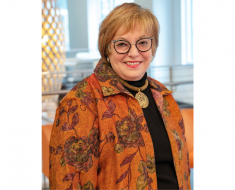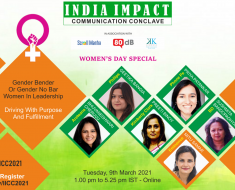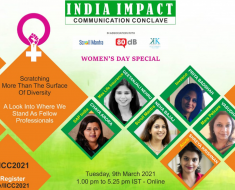Day three of Spectra 2020, the online conference focused on reputation management, saw Gail Heimann, Chief Executive Officer, Weber Shandwick, speaking about the idea of ‘compact’.
Heimann began her talk explaining how the new ‘compact’ is different from the old one, which meant – ‘bringing things together’.
“Compact is a collective agreement to deploy our human intelligence, insight and imagination to solve business and societal problems,” she said. Heimann added that the world needs this ‘creative compact’ now more than ever, as marketing communications leaders are key drivers of what’s next.
She took her audience back in history, 677 years to be precise, talking about the ‘Black Death’ plague and its impact on the world. “Historians say that it probably killed somewhere between 30-60% of the European population – the figure they quote is around 25 million people. What’s interesting is what happened after. There was more land for less labour. Many people were lost that labour became infinitely more vital to do what we needed to do. People’s pay got higher. They were inventing new kinds of automation to support that labour,” she noted.
Heimann brought to attention an interesting corollary. People realised they can’t work with a poor vision and the eyeglasses were introduced after the plague. Literacy was enhanced, people wanted to learn to read and write, and new, innovative ideas took shape. She pointed out how while it was a horrible time with the innumerable people falling prey to the plague, a new order was born.
Correlating it to 2020 she said, “We must put ideas at the centre to drive change forward. We are entering a period that I will call creative, re-enlightenment. This is the new period where ideas matter, creativity matters, what we do really matters. It’s for sure born of circumstances”.
We are going through a global reckoning about the state of us, the state of humankind, she said. It is critical, she noted that those in the realm of marketing and communications have the resilience and spirit to ignite ideas to get to what’s next. On that note, she cited examples of Google Meet and Microsoft Teams as examples of products that stood the test of time in 2020.
According to Heimann, it was Zoom though that was the ‘story of the year’. “In the year 2019, Zoom had 10 million users. In the year 2020, it has 300 million users. It has a market cap of $50 billion, which is greater than the world’s top six airlines put together. Zoom came from a little idea, a great idea, and is now an extraordinary player in an important space that we are fully dependent on,” she said.
Heimann also spoke about Plex’Eat, a plastic shield for those dining in restaurants invented by Christophe Gernigon, a French designer.
“I think they are kind of cool. It might be difficult to have an actual dinner conversation with this lampshade over your head, but one could text one’s co-diner. One of the things people miss most is going out and dining out while being together. It’s a very simple idea.”
Referring to the Aarogya Setu app, an Indian innovation, Heimann said, “The government jumped in early to create an application to track and curb the spread of COVID. It was a terrific idea.”
She further spoke of three other Indian examples that were truly innovative. One, a restaurant in Chennai called Robot that used robots to serve its guests when it opened two years ago. Those very robots now bring people masks and hand sanitisers in the restaurant. The other two were campaigns worked on by Weber Shandwick in India – one for Bill and Melinda Gates Foundation in Dharavi that helped to check the spread of COVID in the area, and the other being Maharashtra State Commission’s campaign against domestic violence.
Moving to 2021
Heimann sees this as the time for creative enlightenment and shared some thoughts on the same.
“This is an old adage, that ‘necessity is the mother of invention’. This will continue to be true. We are in these circumstances and we need to keep inventing. As an industry, whether we are in the communications and marketing industry, or a designer in France, we need to do so. Secondly, ideas will continue to shape the places we experience them. What strikes me there are all of the platforms that we use, whether it be (Microsoft) Teams or Zoom or anything else. We are bringing people together in an extraordinary democratised way and everybody has a voice,” she said.








